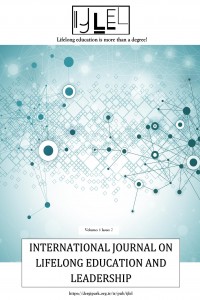Abstract
Project Number
#039/18 Herramientas tecnológicas en Educación Superior
References
- Ajzen, I., & Fishbein, M. (1980). Understanding attitudes and predicting social behavior. Prentice Hall.
- Arrosagaray, M., González-Peiteado., M., Pino-Juste, M., & Rodríguez-López, B. (2019). A comparative study of Spanish adult students’ attitudes to ICT in classroom, blended and distance learning modes. Computers and Education, 134, 3–40. https://doi.org/10.1016/j.compedu.2019.01.016.
- Bond, M., Buntins, K., Bedenlier, S., Zawacki-Richter, O., & Kerres, M. (2020). Mapping research in student engagement and educational technology in higher education: A systematic evidence map. International Journal of Educational Technology in Higher Education, (17)2. https://doi.org/10.1186/s41239-019-0176-8.
- Harasim, L. (2017). Learning theory and online technologies (2nd ed.). Taylor & Francis. Kindle Version.
- Houle, C. (1961). The inquiring mind. Madison. University of Wisconsin Press.
- Kimmel, S., Trouard, S. & Robbins, R. (2020). I Can´t Get No (Grade) Satisfaction: Self-regulated Learning and Success in a School of Business. Business Education Innovation Journal 12(1).
- Knowles, M.S. (1975). Self-directed learning: A guide for learners and teachers. Prentice-Hall.
- Plews, R. (2017). Self-direction in online learning: The student experience. International Journal of Self-Directed Learning, 14(1), 37–57. Access: https://docs.wixstatic.com/ugd/dfdeaf_385a2e4d19254f968487b6058464e00c.pdf.
- Ryan, R.M., & Deci, E.L. (2019). Chapter four: Brick by brick: The origins, development, and future of self-determination theory. In A. J. Elliot (Ed.), Advances in motivation science, (vol. 6, pp. 111–156). Elsevier. https://doi.org/10.1016/bs.adms.2019.01.001.
- Ryan, R.M. & Deci, E.L. (2020). Intrinsic and extrinsic motivation from a self-determination theory perspective: Definitions, theory, practices, and future directions. Contemporary Educational Psychology, 61, 101860. https://doi.org/10.1016/j.cedpsych.2020.101860.
- Tough, A. (1971). The adult’s learning projects: A fresh approach to theory and practice in adult education. Toronto. Ontario Institute for Studies in Education.
- Tseng, H., Yi, X., & Yeh, H.T. (2019). Learning-related soft skills among online business students in higher education: Grade level and managerial role differences in self-regulation motivation, and social skill. Comupters in Human Behavior, (95), 179–186. https://doi.org/10.1016/j.chb.2018.11.035.
Abstract
This study constructed and validated an attitude scale for ethics learning units using technology among undergraduate students in a Mexican business school. We sought to determine whether the motivation and usage of a learning-management system (LMS) combined with learning elements in mobile applications and the active support of instructor increases motivation, willingness to learn, learning benefit, and satisfaction in ethics learning units. The approach of this study is quantitative, transversal, and not experimental and used a sample (N = 227) of international business, administration, and public accounting undergraduate students. The self-reported data from students were obtained from anonymous questionnaire surveys. It is a pilot study and the sample presented is relatively small, which limits the applicability of the findings. Because the instrument is a self-support and is anonymous, participants can respond in socially desirable terms, remaining neutral in the response.
Keywords
Supporting Institution
Autonomous University of Nuevo León (MEXICO), Faculty of Public Accounting and Administration – School of Business
Project Number
#039/18 Herramientas tecnológicas en Educación Superior
Thanks
We would like to thank the students Marcela Danira Gonzalez Díaz and Katja Paola Serrato Chávez, who helped with the creation and distribution of the questionnaires as part of the Young-Researchers-Program.
References
- Ajzen, I., & Fishbein, M. (1980). Understanding attitudes and predicting social behavior. Prentice Hall.
- Arrosagaray, M., González-Peiteado., M., Pino-Juste, M., & Rodríguez-López, B. (2019). A comparative study of Spanish adult students’ attitudes to ICT in classroom, blended and distance learning modes. Computers and Education, 134, 3–40. https://doi.org/10.1016/j.compedu.2019.01.016.
- Bond, M., Buntins, K., Bedenlier, S., Zawacki-Richter, O., & Kerres, M. (2020). Mapping research in student engagement and educational technology in higher education: A systematic evidence map. International Journal of Educational Technology in Higher Education, (17)2. https://doi.org/10.1186/s41239-019-0176-8.
- Harasim, L. (2017). Learning theory and online technologies (2nd ed.). Taylor & Francis. Kindle Version.
- Houle, C. (1961). The inquiring mind. Madison. University of Wisconsin Press.
- Kimmel, S., Trouard, S. & Robbins, R. (2020). I Can´t Get No (Grade) Satisfaction: Self-regulated Learning and Success in a School of Business. Business Education Innovation Journal 12(1).
- Knowles, M.S. (1975). Self-directed learning: A guide for learners and teachers. Prentice-Hall.
- Plews, R. (2017). Self-direction in online learning: The student experience. International Journal of Self-Directed Learning, 14(1), 37–57. Access: https://docs.wixstatic.com/ugd/dfdeaf_385a2e4d19254f968487b6058464e00c.pdf.
- Ryan, R.M., & Deci, E.L. (2019). Chapter four: Brick by brick: The origins, development, and future of self-determination theory. In A. J. Elliot (Ed.), Advances in motivation science, (vol. 6, pp. 111–156). Elsevier. https://doi.org/10.1016/bs.adms.2019.01.001.
- Ryan, R.M. & Deci, E.L. (2020). Intrinsic and extrinsic motivation from a self-determination theory perspective: Definitions, theory, practices, and future directions. Contemporary Educational Psychology, 61, 101860. https://doi.org/10.1016/j.cedpsych.2020.101860.
- Tough, A. (1971). The adult’s learning projects: A fresh approach to theory and practice in adult education. Toronto. Ontario Institute for Studies in Education.
- Tseng, H., Yi, X., & Yeh, H.T. (2019). Learning-related soft skills among online business students in higher education: Grade level and managerial role differences in self-regulation motivation, and social skill. Comupters in Human Behavior, (95), 179–186. https://doi.org/10.1016/j.chb.2018.11.035.
Details
| Primary Language | English |
|---|---|
| Subjects | Studies on Education |
| Journal Section | Research Article |
| Authors | |
| Project Number | #039/18 Herramientas tecnológicas en Educación Superior |
| Publication Date | December 31, 2020 |
| Submission Date | August 19, 2020 |
| Published in Issue | Year 2020 Volume: 6 Issue: 2 |

